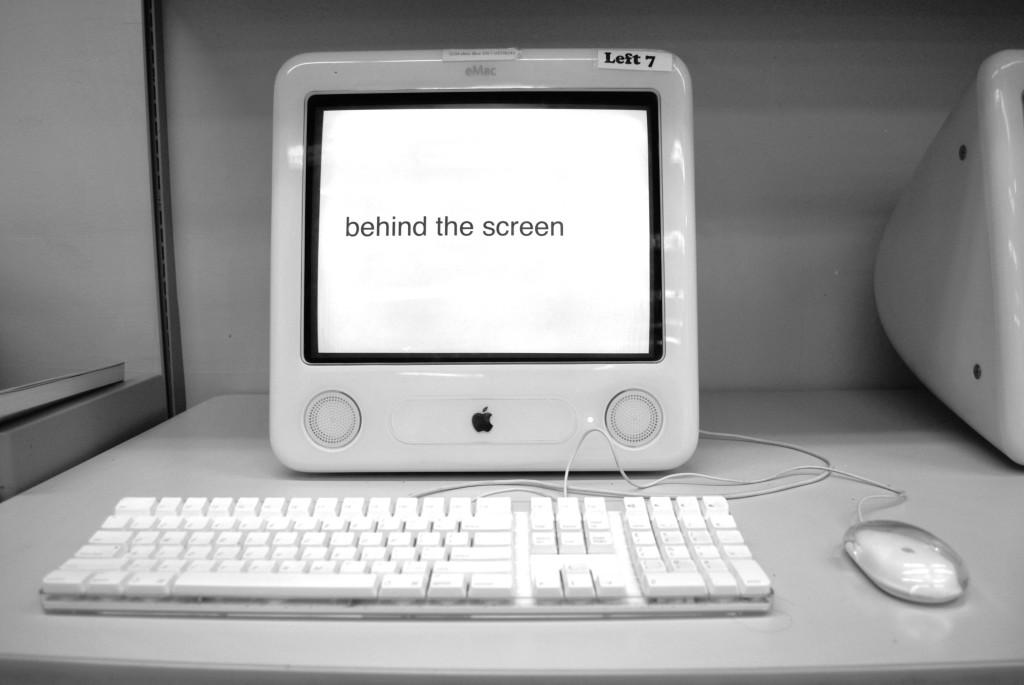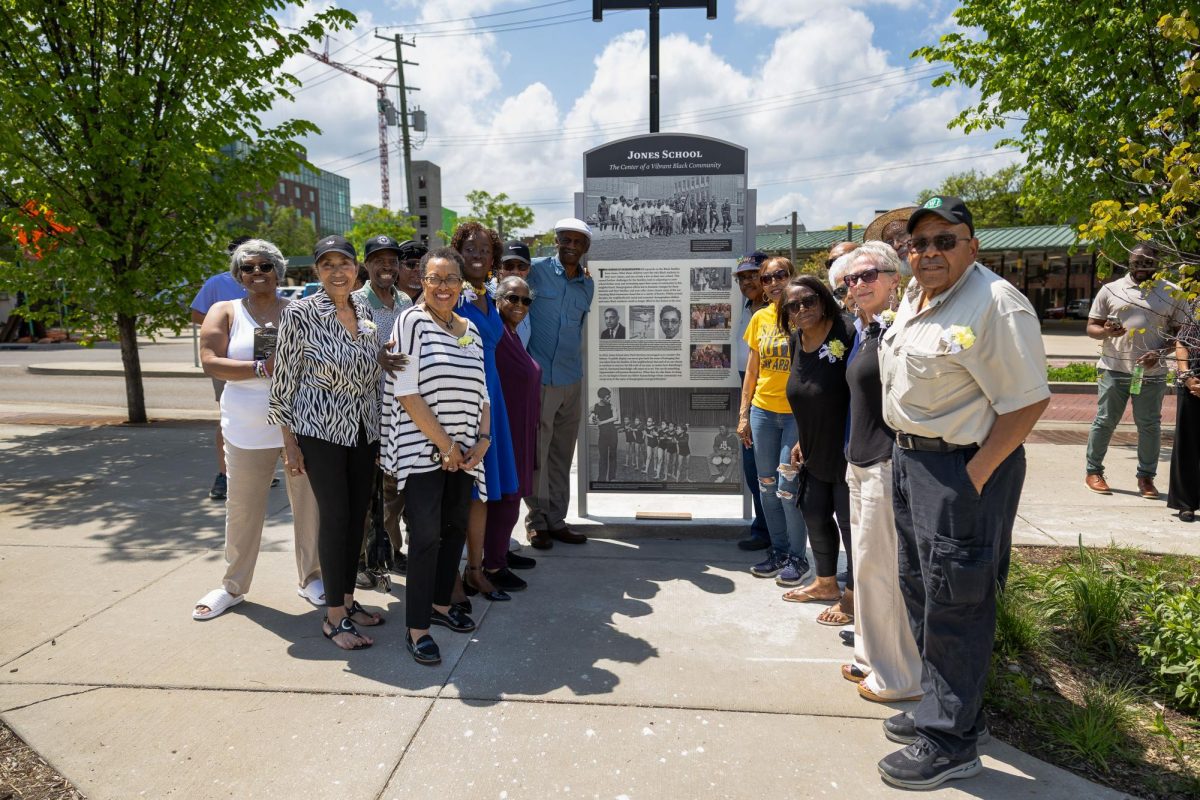The clacking of keystrokes are the only sounds to be heard in the otherwise silent computer lab. The students are taking the SRI and MyAccess tests, and they are not the only ones. For roughly five years, every high school student in the Ann Arbor Public School system has taken the SRI/MyAccess twice a year, every year, as part of the English Department’s common assessment curriculum, mandated by the Michigan State Board of Education.

By directives from the state level, all schools in Michigan are required to have a common assessment piece – a uniform, subjective test whose results can be compared district-wide.
Anne Reader, Instructional Technology Coach for Ann Arbor Public Schools, spoke about the term common assessment. “It’s a common term that’s being thrown around in education a lot right now. So as part of the common assessment there are objective pieces and some subjective pieces, in particular for English/Language Arts. They wanted to have some, what the district would consider some objective pieces, or some computerized pieces that don’t have a teacher evaluation component to them.”
Ann Arbor Public Schools chose the SRI (Scholastic Reading Inventory) and MyAccess tests as its common assessment piece.
Both tests are entirely computerized; both taken on a computer and scored by a computer, with most students having no knowledge of the criteria in which the the tests produce their numerical score.
The MyAccess uses an automated program to judge student responses based off of prompts it gives. “It looks at the language that you use specific to what the prompt is asking you,” said Reader. “So if you’re using words from the actual prompt question in your thesis statement, it looks for things like that. It also looks for transition words like ‘first, secondly’ and so on. It’s looking for your point, your main point.”
The grading system, known as Intellimetric, begins with five to six hundred ‘pilot’ prompts, or essays written by students and hand-graded by teachers.
Those grades are soon evaluated to determine what one through six score it would receive on the MyAccess, and by the time AAPS students respond to prompt, a computer is already trained to analyze essays on the fly, and evaluate their score.
But the accuracy of a computerized grading system is debatable. “I think that kids know how to play with MyAccess,” said literature teacher Judith DeWoskin. “I did see an example of a paper where a student, who was a good writer, simply wrote the same sentence three or four times every paragraph and used very sophisticated words with lots of syllables, and the score was quite high. The paper was absolutely unintelligible, but MyAccess gave it a good score.”
Manipulating MyAccess to receive higher points is not uncommon among students. “I honestly just mess around with it and still get above proficient in everything,” said Daniel Chapman, a sophomore at Community High. “I’ve used longer words on purpose, that’s it, I mean writing about a topic using pretty long words will get you a good score.”
“It’s pretty well agreed that a computer can’t objectively grade an essay,” argued senior Micheal Savage, “Maybe it can grade form and grammar and spelling and length and complication of the diction but it can’t decide whether an argument makes sense.”
Test administrators in the district claim that the accuracy of the test corresponds with the level of seriousness in which the student applies to their essay. “I think MyAccess is accurate if the person taking it follows the rubric,” said Nat Powell, Media Center specialist and SRI/MyAccess advisor at CHS. “…I mean they’ve done thousands and thousands and thousands of these. Of course, like anything you can go in there manipulate it. You can try and outsmart it – it has been done. But on a whole, I think it is pretty accurate.”
“If you’re an excellent writer,” said Reader, “and you can make an essay interesting with a lot of pretty words and still make the point that you’re trying to make, [MyAccess] doesn’t have the capabilities to reward that type of writing. I think that MyAccess is good for struggling writers, I think that if you’re already a writer that has a good skill set, it’s probably not as effective.”
While a computer’s ability to score essays on MyAccess is debated, the SRI is strictly a vocabulary test. Owned by the Scholastic publishing company, students must read short passages and answer questions regarding vocabulary, and are given a numerical “Lexile” score of their reading ability. A personalized list of recommended books, all published by Scholastic, is presented to students at the end of the test. But what goes on behind the screen is largely unknown to students.
As of now, The SRI/MyAccess tests are used for nothing more than detecting students below a certain proficiency, measuring growth and trends, and assisting teachers in fine tuning their curriculum. “That is a noble end,” said Literature teacher Ken McGraw. “And I’m all for that, I’ll participate in that.” But rumors of their growing importance in AAPS are beginning to become more and more concerning.
“My fear is that my pay is going to be tied to these assessment scores,” explained McGraw. “…my job, my pay, my job security could be hinging on instruments which are dubious, which I am very skeptical about.”
In December of 2009, a flurry of education related bills were passed in the Michigan legislature in order to qualify for the Obama Administration’s “Race to the Top” stimulus money, part of the American Recovery and Reinvestment Act (Source: Michigan Association of Secondary School Principals). While Michigan did not qualify for the stimulus, the new laws, including Senate
Bill 981, will greatly impact the future of Michigan education. SB 981, among other new measures, requires student data to be a significant measure of teacher and administrator evaluations, as well as their merit pay. That means SRI/MyAccess, Ann Arbor’s chosen form of collecting student data, will directly affect teacher salaries, and their job security.
When asked about the link between common assessment scores and teacher pay, Powell’s answer was ominous. “Merit pay has not been tied to the results on the MyAccess. That’s something the state’s looking at but it hasn’t happened yet.”
Using student data, derived from standardized test scores as a significant measure of teacher’s achievement may have very serious implications, especially a test that may have corporate gains to make such as the Scholastic owned SRI, argues McGraw. “I think the notion that we are going to base our education system, our compensation of teachers, our firing of teachers, whether or not to change programs like Community High on something made up by a company that has financial gain at stake, I think that’s absurd. And I think it verges on criminal, actually.”
Regardless of what the future may hold for standardized tests role in the Ann Arbor education system, the SRI/MyAccess is only used as an evaluative tool; a way for teachers to assess growth and their learning curve.
But it is the teachers themselves who are more than able to evaluate their own students without the help of an electronic grading system. “I think teachers can assess their students writing progress very effectively,” said DeWoskin. “We give a variety of writing assignments, and I trust us, I trust my department, I trust my colleagues. I don’t trust a computerized grading system that the [MyAccess] uses.”
“We have to have some way of justifying what you’re doing at school,” said Reader, “which is the sad part of it, but I think that students learn better when they’re interested in what they’re learning about, quite frankly. I like it when you can integrate all the different pieces and sort of mesh the curriculum together throughout the day, instead of training for a test for example. But the bottom line is there are times where you have to. You just have to. And you have to perform on them.”
“I’m hoping that the district has faith in the teachers,” said DeWoskin, “and the way teachers assess students, and doesn’t spend a lot of money and time and effort and training into sending us down the road of nothing but testing, and I’m a little worried about that now. I don’t think it’s just our district. I think its an issue at a national level as well.”










